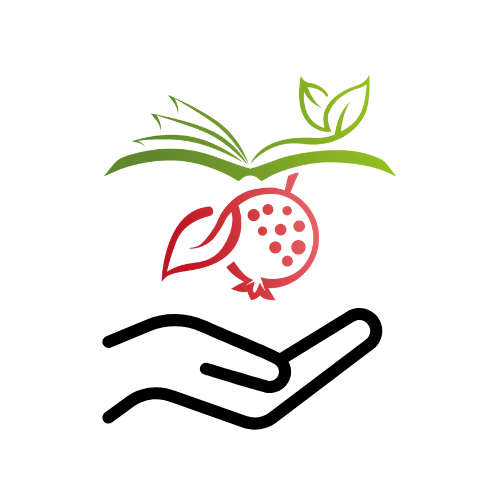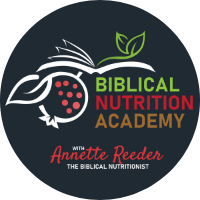5 Ways to Celebrate Feast of Unleavened Bread

Experiencing health isn’t just about eating a certain way and moving your body. True health also includes mental and spiritual wellness. One way we can foster spiritual health is to celebrate festivals of the Lord. The Feast of Unleavened Bread is one such festival we can celebrate.
When you observe God’s celebrations and teach them to your children, you’re engaging all their senses. When we employ taste, smell, sight, sound, and touch, their minds are less likely to wander to other things. You’ll have their full attention and make the stories they’re used to reading come alive. They will remember it forever, and so will you!
(Don’t have children at home? The celebration of eliminating leavened bread from your home for seven days will still bless you tremendously.)
Taking time to celebrate the Feast of Unleavened Bread is a wonderful opportunity to draw closer to Jesus Christ. This tangible way to teach the Lord’s character and His principles, connecting the commands found in Exodus 12 and the New Testament, draws us closer to God in unique ways.
When we store the memory of eliminating leavened bread and eat unleavened bread with sincerity and truth, we open our hearts to what’s possible. That with God, nothing is impossible. Let us take every opportunity to worship God and receive more of His blessings.
Celebrating festivals reminds us of how they were fulfilled in the New Testament. (See 1 Corinthians 5.) Old Testament holidays not only connect us to the ancient people of the Lord, but also to the Lord Himself.
A great place to start is to read the story of when God commanded the people to eat unleavened bread, found in Exodus 12.
Prepare to Celebrate

Unlike many modern holidays, this feast shifts dates on the western calendar each year. The Jewish calendar follows the lunar cycle and therefore changes from year to year. But it only takes a quick online search to find the equivalent on the Gregorian calendar.
Set the date
Passover is on the 14th of Nisan, the first month on the Jewish calendar. This year, Passover fell on Wednesday, April 8.
The Feast of Unleavened Bread begins on 15th of Nisan and lasts for seven days. The first day fell on Thursday, April 9, 2020. (Even though this day begins the Feast, unleavened bread is used on Passover, also.)
Although the feast has already begun this year, it’s not too late to bring the celebration alive in your home! Now is the perfect time to educate yourself. Use this opportunity to learn about the festival and put some of the ideas into practice. Then you’ll be ready for next year.
It’s best if you’re able to prepare ahead of time. Go ahead and set a reminder on your phone for a week before Passover for next year. Passover begins on Saturday, March 27 in 2021. Do it. Plug Passover in your phone now.
Whether you’re planning to start this year or next, set the clock for sundown on the first day.
God created night and day in that order. While we count 24 hours starting at midnight, the Jewish culture counted the beginning of a day at sundown based on creation. God created dark first, then light, so the Jewish day starts with dusk.
Once you’ve decided to participate in the celebration and set your clock, you’re ready to start.
5 steps of Celebrating the Feast of Unleavened Bread

Step 1 – Clean.
Remove all leaven from your house. Foods that are considered to have leaven are those with yeast, baking soda, and/or baking powder. Foods which are fermented are also considered to have leaven. This is why you start a little before the seven days of celebration! It takes some prep time.
When the Jewish people cleaned out their homes of all leaven, they were thorough. They took a feather and swept all their crumbs into a paper bag. What did they do with the bag? More on that to come later.
As you’re cleaning, sweep up leavening crumbs with broom/brush and dustpan. Check underneath furniture. Lift cushions. Pull out buffets and examine under cabinets. Get everything you can. Almost. Leave a few crumbs for a later activity.
Do you throw your containers of yeast, baking soda, and baking powder away? Do you get rid of all yogurt, kefir, kombucha, etc.? That’s up to you. How you celebrate the feast is between you and God.
Remember, though, you can’t go too far. Also keep in mind it’s not about being legalistic. It’s about getting out of our routine to honor God. As you see how many places there are crumbs in the house – take note of how many areas in our lives sin has crept in.
The purpose of celebrating the Feast of Unleavened Bread is celebrating the Lord and drawing closer to Him. Set out for this purpose, and God will guide you.
Step 2 – Cook.

Make unleavened bread. There are several options for making unleavened bread. Don’t buy it unless you must. Store-bought matza crackers tend to be bland. They don’t give you the opportunity to fully experience the celebration. Again, this isn’t a requirement, but a suggestion meant to bless you.
Making unleavened bread is easy. It’s a fun family activity. And it will fill your home with the festive smells and tastes of the celebration found in Exodus 12 and experienced by thousands of generations of Jewish people.
What do you need to make unleavened bread at home? It’s so simple!
- Flour
- Water
- Salt
- Oil (optional)
Remember, the feast lasts for seven days. Use the time to try new and creative ways to eat unleavened bread.
Step 3 – Search.
Start the search party.
In the Jewish customs, this would occur during the Passover celebration.
In the evening of the first day of your celebration (either Passover or the first day of the feast), take a candle (or flashlight) and have the children in your home use a broom or feather to look for the remaining crumbs. (Remember the ones you left?) Children enjoy hide-and-go-seek. This activity gives the fun game a deeper, spiritual purpose.
Once the crumbs are gathered and swept into the bag, take your candle and burn the crumbs to destroy them. Be wise and do this safely, taking care to monitor the activity closely.
Why are the crumbs burned? This process is a metaphor for how we want to treat sin.
We want to hunt down any leaven – or sin – in our lives, and collect it to burn. When we don’t seek out sin in the secret places of our lives – just like leavened breadcrumbs can hide under tables, chairs, and in cushions – they’ll remain to taint us.
Light is the tool we use to reveal sin. This activity reminds us the feast is about so much more than the type of bread we eat. It’s about honoring God in sincerity and truth. Light always chases away darkness. Jesus came to be the Light of the world!
Step 4 – Celebrate

Talk about the activities and preparations you made. Discuss what God did for the Israelites. Read key passages in the New Testament expounding on what God did for the early believers. Go over what God has done for you.
Eat the unleavened bread. Try different ways of adorning the bread.
There are many great options for unleavened bread.
- Make it in into pizza crust
- Add some stevia for a sweetened bread
- Add some cinnamon
- Add avocado
- Top it with fruit
Have fun!
Step 5 – Rejoice!
Dance, sing, and praise the Lord for what He’s done. You’ve read about it. You’ve talked about it. Now rejoice in it.
(A great song that goes along with this celebration is Shake! by MercyMe. We want to shake – behave – like we’ve been changed.)
There are many creative ways to make the story of God’s deliverance alive in our hearts.
The purpose of this celebration isn’t just to eat different types of bread for seven days. All of the activities and rituals remind us to intentionally set aside time to:
- Examine your heart
- Praise God for what He has done
- Celebrate what God wants to do in your heart
The Heart of the Feast of Unleavened Bread
The visuals we’re trying to create by celebrating Passover and the Feast of Unleavened Bread are not just a reminder of the deliverance from Egypt, but a reminder for us to search our hearts.
What have we allowed in?
We need to teach fermenting is another way of leavening products. Ferment is when things puff up. Pride in one sin the Bible refers to as puffing us up.
Sin is anything we think, say, or do that displeases God.
What have you allowed into your life that’s displeasing to God?
Now is a good time to evaluate what we’ve allowed in our lives in the following areas:
- What we say
- What we watch on television
- What we listen to
- What we do
Take the opportunity on this day – through the light of prayer and God’s Word – to examine what sin has crept into your life. It’s often insidious and sneaky. We sometimes don’t even notice sin inching its way in. We participate in celebrating festivals like the Feast of Unleavened Bread to be intentional about getting real about sin. Ask God to reveal in you what you aren’t aware of.
Break free

Leavening served a symbol of bondage. The Feast of Unleavened Bread celebrated the freedom of the Israelites from slavery in Egypt. Christians taking part in this celebration to rejoice in the freedom from bondage to sin.
This freedom comes from The Passover Lamb – Jesus Christ. He was sinless. Perfect. He took away our sins on the cross.
We see this in 1 Corinthians 5:7-8: “Cleanse out the old leaven that you may be a new lump, as you really are unleavened. For Christ, our Passover lamb, has been sacrificed. Let us, therefore, celebrate the festival, not with the old leaven, the leaven of malice and evil, but with the unleavened bread of sincerity and truth.”
Remind yourself and teach your children that we can’t let thoughts permeate and ferment in our brain unless they’re God-honoring thoughts.
Our thoughts become our beliefs.
Our beliefs determine our behavior.
Our behavior determines the results of what we’re getting in life.
We want our thoughts, behavior, and lives to honor God.
Conclusion – Spiritual Celebration is Serious, but also Delightful
Use the seven days set aside for this festival to take an inventory. Have you had any leavening or souring crept into your heart? Examine yourself and teach your children how to do the same.
We’ve been given a gift. Remember what great gifts forgiveness from sin and the promise of eternal life with God through Jesus Christ are!
Celebrate. Have fun.
Bring glory to God in everything. Including the celebration of His Holy days such as the Feast of Unleavened Bread.
Have you celebrated the Feast of Unleavened Bread before? Is this your first time? Do you plan to participate next year? I’d love to hear your experiences and the result of what God does in your life through this special, set-aside time. I praise God with you in what He’s working in and through each of our hearts.






So glad this article was helpful, Howard!